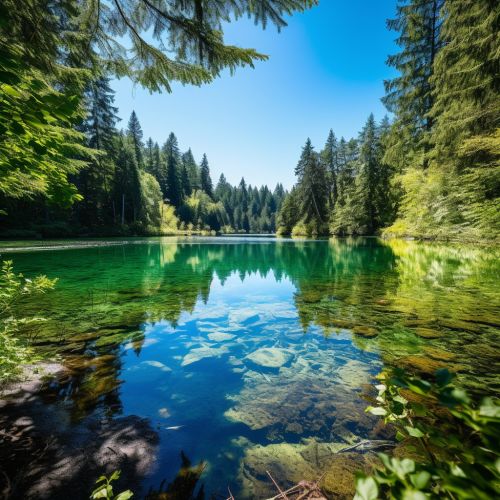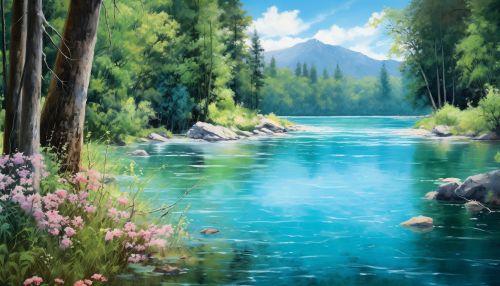Scott Lake
Geography
Scott Lake is a body of water located in North America. The lake is known for its clear waters and abundant fish population. It is surrounded by a diverse ecosystem, comprising various species of flora and fauna. The lake is named after its discoverer, John Scott, who stumbled upon it during an expedition in the late 18th century.


History
The history of Scott Lake is rich and varied. The lake was discovered by John Scott, a renowned explorer, in the late 18th century. Scott was on an expedition to chart the unexplored territories of North America when he came across the lake. The lake was named in his honor, recognizing his contributions to geographical exploration. Over the years, Scott Lake has been a popular destination for fishing and recreational activities.
Flora and Fauna
Scott Lake is home to a diverse range of flora and fauna. The surrounding area is lush with various species of trees, shrubs, and wildflowers. The lake itself is teeming with a variety of fish species, making it a popular spot for fishing enthusiasts. The lake is also home to several species of waterfowl, making it a birdwatcher's paradise.
Recreational Activities
Scott Lake offers a plethora of recreational activities for visitors. Fishing is one of the most popular activities, with the lake being home to a variety of fish species. The lake is also ideal for boating, with several boat rental services available for visitors. Hiking trails around the lake offer stunning views of the surrounding landscape. The lake is also a popular spot for birdwatching, with several species of waterfowl calling it home.
Conservation Efforts
Conservation efforts at Scott Lake have been ongoing for several years. The lake and its surrounding areas are protected under local conservation laws, ensuring the preservation of its diverse ecosystem. Regular clean-up drives are organized to maintain the cleanliness of the lake and its surroundings. Fishing is regulated to prevent overfishing and to maintain the balance of the lake's ecosystem.
